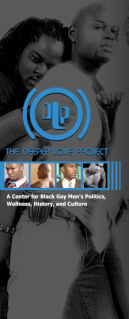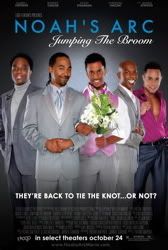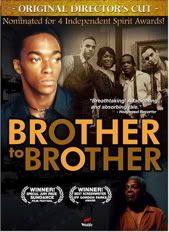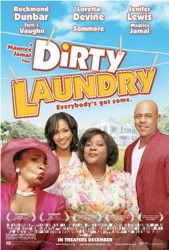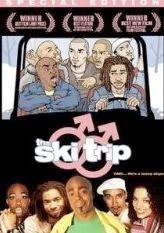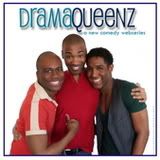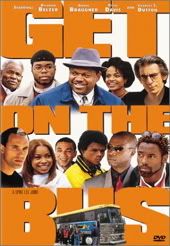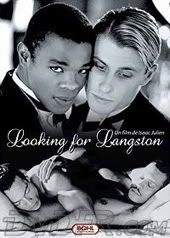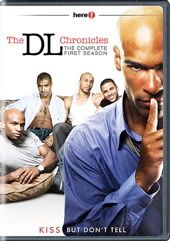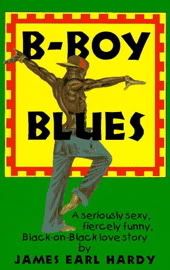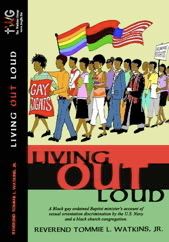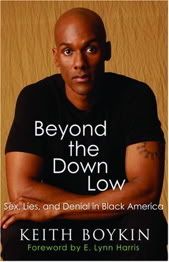
In 2004, lesbian activist
FannyAnn Eddy was brutally murdered in Sierra Leone in her office building a few months after returning from a meeting with the
United Nations Commission on Human Rights. The details surrounding her death are horrific: evidence revealed that her throat was cut, her tongue and eyes were removed and she was raped. Although the motives of Eddy’s assailant(s) are sketchy, her untimely death shook the African LGBT community, and left her partner and son without a spouse and mother.

In response to Eddy’s murder, Selly Thiam, a first-generation Senegalese queer activist, founded
None On Record: Stories of Queer Africa, an audio documentary project that includes a collection of stories from the QLGBT African and African Diaspora community. Her first interview was broadcast on NPR in 2005 with
Notisha Massaquoi, a queer woman from Sierra Leone, and since then, the project has continued to expand in cities across the U.S., Canada and South Africa. Thiam’s documentary and grassroots organizing breaks the silence on seclusion, homophobia and the extreme acts of violence that have happened as a result.
SB: What was going through your mind when you heard of FannyAnn Eddy’s death?
ST: When I heard about FannyAnn, I was living in Chicago at the time and this was the first time I saw a West African lesbian, even though I had done so much LGBT organizing in Chicago with black organizations. It had a big impact on me in thinking about the realities of those who were living out as queer or LGBT in African communities. Once Notisha’s interview went on NPR, and the energy behind meeting other people grew, it became clear that it was bigger than I thought it was going to be.
SB: Why did you decide to name the project None On Record?
ST: The name of the project stems from a priest I met from Nigeria who was seeking refugee status in Chicago – not because of his sexual orientation, but political persecution, although he is a gay man. When I asked him if he knew any names of LGBT people in his native language of Yoruba, he paused for a long time and said, “I have none on record.” Every way we’ve described this project comes from the people we’ve interviewed and their stories. How do you describe a queer African and people who may be gender non-conforming in their native language? That’s all being debated because it changes from region to region.
While trying to put this into text, I asked myself, “What kind of language do I use to describe this? This person is gay in New York, but are they gay back home in their village in Nigeria?”
SB: Do you feel a disconnection from Senegal?
ST: I actually feel very connected, but when you identify as queer within the African Diaspora, it can be very difficult to find a way to fuse your African identity with your queer identity. Oftentimes, you’re living two double lives. And I think that’s where the disconnection and isolation comes into play.
When you’re in the Diaspora, people are fighting so hard to be seen as Africans. It’s almost like they want people to know that they’re African. And they want gay people from Africa to know that they are African because there’s always the question of authenticity in the black community. When you get to the States, Canada or parts of Europe, it becomes a little bit murky because people have so many different places they call home. And they’re influenced by so many different things that they may ask, “Am I still African at all?”
SB: How do you find a personal balance with your American and African identity?
ST: I identify as a Senegalese person and African-American. My mother is African-American and my father is Senegalese. Both of those roots are very important to me. I have a different perspective in regards to how I see the role of blackness in a global context because I know how blacks have worked and struggled in different parts of the world.
SB: How did your father deal with your sexuality when you came out to him?
ST: My father knows I’m gay but that’s not important to him at this time. He’s a bit of a revolutionary thinker and not into policing the way I identify. I can tell you that coming out to my mother took decades of her trying to wrap her mind around it. I never really explained to her what I was doing with this project for so many years because I didn’t want her to worry when I traveled. But when she came to visit me in New York a couple of months ago, I played one of the stories we documented. And she said, “Oh my God! This is amazing!” Sometimes, parents surprise you.
SB: Why did you choose to do this as an oral history project, as opposed to documenting it for a book?
ST: I was studying in Mexico before I did my first interview with Notisha in 2004. While there, I did an interview with a NPR producer who made a film in Ghana about a female superhero whose “superhero” powers kicked in whenever a woman was assaulted and she would beat up the assailant. The producer asked me what I was going to work on next and I told her that I was going to Toronto to interview a woman [Notisha] from Sierra Leone who was a lesbian. She told me to take some audio equipment and record her. I recorded it, and later NPR aired it.
I didn’t go with the intention of recording anything, but after doing two or three interviews via audio, I realized that the sound of people’s voices started to mean something to me. It’s one thing to write these narratives down, but it’s another experience to hear when someone hesitates before answering a question or hearing when their voice changes when they are coming across a topic that may be uncomfortable for them because it still carries a lot of pain. Audio is a way to get an essence of a person. It’s like two souls talking.
SB: Who are you planning to submit this project to and how can other people get involved?
ST:
The Schomburg Center for Research in Black Culture and the
Gay and Lesbian Archives (GALA) in Johannesburg are interested in using it as a reproduction. People can do interviews, or donate money and time if they have an expertise or skill. We also have satellite programs all over the world for people to do interviews. To date, we’ve done approximately 30 interviews globally.
SB: How has this project impacted your life?
ST: I now have a huge amount of friends in my African queer community. I love editing, traveling and hearing people tell courageous stories. It’s been amazing for me to see the humanity of people in tough times and it helps me understand the privileges of being a woman born here who has the resources to make this type of project happen.
For more information about None On Record: Stories of Queer Africa, please visit their website:
noneonrecord.comClick
here to listen to archived recordings from their website.
This post is courtesy of new loldarian.com contributor Stephanie Barnes. Barnes is a Women and Gender Studies graduate student at Rutgers University and a reservist in the US Air Force. She is the former publisher Shades Magazine. Barnes is also a former GLAAD intern. Loldarian.com is thrilled to have her on board!
 1
comments
|
Monday, April 18, 2011
1
comments
|
Monday, April 18, 2011













